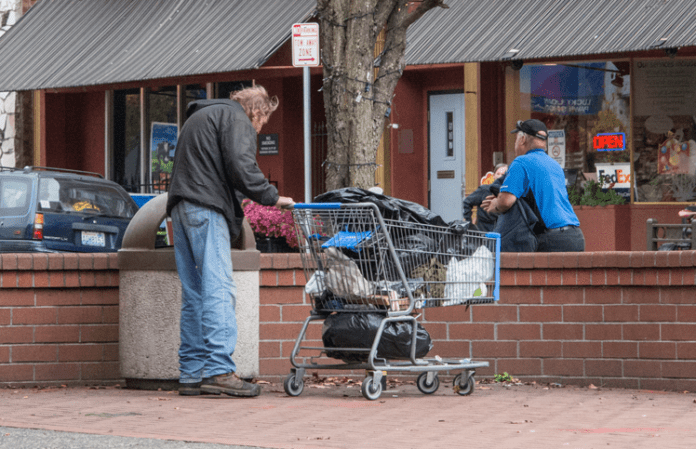Earlier this fall, Vancouver’s City Council amended the local camping ordinance to allow camping on public lands between 9:30 p.m. and 6:30 a.m., except in parks. The move was a response to a severe shortage of emergency shelter and a competitive rental market, which makes it difficult for people experiencing hardship to find housing.
While activists herald the change as a positive step away from criminalizing homelessness, the business community is still unsure about its effect on them; by allowing encampments within city limits, the new ordinance is making homelessness more visible.
According to Mark Schlesinger, senior property manager for property management firm Schlesinger Companies, increased homeless activity in the Sculpture Garden, which is adjacent to the company’s 805 Broadway building, is now affecting tenants.
“I have to be honest and tell you that on a very regular basis, I receive emails, phone calls, from my tenants concerned about the activity that they see and they witness in [the sculpture garden park],” he said. “They witness drug transactions. They witness individuals and groups that, to the best of my knowledge, are doing illegal activities, don’t pick up after themselves [and] vandalize the property.”
Tenants have even gone as far as to talk about relocating their businesses, Schlesinger said, leaving him unsure that the building will hold its value unless something changes.
Fortunately, Schlesinger said, the new ordinance could be a net positive for the community – but only if the city developed a well-enforced code of conduct that addresses some of the core concerns.
“There needs to be codes of conduct that we all – the good citizens and the public in general –abide by,” he said. “And I don’t think those types of actions should be tolerated.”
When asked about concerns from the business community regarding continued homeless activity, Vancouver City Councilmember Alishia Topper said the impact on business is “definitely top of mind.”
“[The business impact] is an incredibly important element,” she said. “Many [businesses] are impacted by people that are sleeping in front of their doorways, maybe panhandling, maybe in parks next to their business. Even if it’s not directly impacting them, it’s still a community perception issue, which may impact people wanting to come from outside of the area to their place of business.”
Topper said the city council will continue to have conversations that include the needs of the business community, with the goal of having a plan in place by the end of the year.
In the meantime, Topper touted efforts led by Identity Clark County (ICC) to construct a new day facility to aid the homeless. The facility, which will break ground on Saturday, November 7, will allow people experiencing homelessness to remain clean.
The hope, according to ICC President John McKibbin, is that the new facility will be ready for use starting by the end of the month.
“There is no silver bullet,” said McKibbin, when asked about developing a long-term plan to address homelessness in Vancouver. “This is a very complex issue.”
McKibbin said that progress will be made as long as the public sector and business sector continue to problem solve in a combined effort.
Topper agreed.
“Ultimately it comes down to affordable housing and the affordable housing crisis, and that’s a longer-term solution,” she said. “Hopefully our business representatives will help us come up with some kind of plan for incentives to increase the inventory through private developers and additional partnerships with our public housing agencies.”




